第316章
And he has tried to live there, and has failed; and is now in debt. Iwonder whether Grantly will give him St Ewold's?'
'I wish he would. But you must ask him. I should not dare.'
As to the matter of the cheque, the dean acknowledged to his wife at last that he had some recollection of her having told him that she had made the sum of money up to seventy pounds. 'I don't feel certain of it now; but I think you must have done so.' 'I am quite sure I could have done it without telling you,' she replied. 'At any rate you said nothing of the cheque,' pleaded the dean. 'I don't suppose I did,' said Mrs Arabin. 'I thought that cheques were like any other money; but I shall know better for the future.'
On the following morning the dean rode over to Hogglestock, and as he drew near to the house of his old friend, his spirits flagged--for to tell the truth, he dreaded the meeting. Since the day on which he had brought Mr Crawley from a curacy in Cornwall into the diocese of Barchester, his friend had been a trouble to him rather than a joy. The trouble had been a trouble of spirit altogether--not all of pocket. He would willingly have picked the Crawleys out from the pecuniary mud into which they were for ever falling, time after time, had it been possible.
For, though the dean was hardly to be called a rich man, his lines had fallen to him not only in pleasant places, but in easy circumstances--and Mr Crawley's embarrassments, though overwhelming to him, were not so great as to have been heavy to the dean. But in striving to do this he had always failed, had always suffered, and had generally been rebuked. Crawley would attempt to argue with him as to the improper allotment of Church endowments--declaring that he did not do so with any reference to his own circumstances, but simply because the subject was one naturally interesting to clergymen. And this he would do, as he was waving off with his hand offers of immediate assistance which were indispensable. Then there had been scenes between the dean and Mrs Crawley--terribly painful--and which had taken place in direct disobedience to the husband's positive injunctions. 'Sir,' he had once said to the dean, 'I request that nothing may pass from your hands to the hands of my wife.' 'Tush, tush,' the dean had answered. 'I will have no tushing or pshawing on such a matter. A man's wife is his very own, the breath of his nostril, the blood of his heart, the rib from his body. It is for me to rule my wife, and I tell you that I will not have it.' After that the gifts had come from the hand of Mrs Arabin; and then again, after that, in the direst hour of his need, Crawley had himself come and taken money from the dean's hands! The interview had been so painful that Arabin would hardly have been able to count the money or to know of what it had consisted, had he taken the notes and cheque out of the envelope in which his wife had put them. Since that day the two had not met each other, and since that day these new troubles had come.
Arabin as yet knew but little of the manner in which they had been borne, except that Crawley had felt himself compelled to resign the living of Hogglestock. He knew nothing of Mrs Proudie's persecution, except what he gathered from the fact of the clerical commission of which he had been informed; but he could imagine that Mrs Proudie would not lie easy in her bed while a clergyman was doing duty almost under her nose, who was guilty of the double offence of being accused of theft, and of having been put into his living by the dean. The dean, therefore, as he rode on, pictured to himself his old friend in a terrible condition. And it might be that even now that condition would hardly have been improved. He was no longer suspected of being a thief;but he could have no money in his pocket; and it might well be that his sufferings would have made him almost mad.
The dean also got down and left his horse at a farmyard, as Grantly had done with his carriage; and walked on first to the school. He had voices inside, but could not distinguish from them whether Mr Crawley was there or not. Slowly he opened the door, and looking round saw that Jane Crawley was in the ascendant. Jane did not know him at once, but told him when he had introduced himself that her father had gone down to Hoggle End. He had started two hours ago, but it was impossible to say when he might be back. 'He sometimes stays all day long with the brickmakers,' said Jane. Her mother was at home, and she would take the dean into the house. As she said this she told him that her father was sometimes better and sometimes worse. 'But he has never been so very, very bad, since Henry Grantly and mamma's cousin came and told us about the cheque.' Those words Henry Grantly made the dean understand that there might yet be a ray of sunshine among the Crawleys.
'There is papa,' said Jane, as they got to the gate. Then they waited for a few minutes till Mr Crawley came up, very hot, wiping the sweat from his forehead.
'Crawley,' said the dean, 'I cannot tell you how glad I am to see you, and how rejoiced I am that this accusation has fallen from you.'
'Verily the news came in time, Arabin,' said the other, 'but it was a narrow pinch--a narrow pinch. Will you enter, and see my wife?'